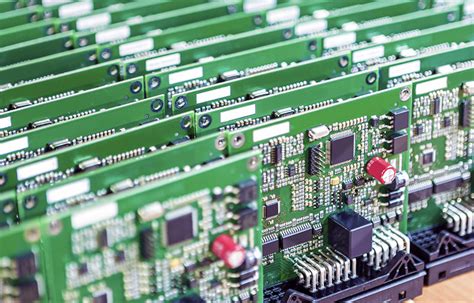Understanding Your PCB Requirements
Before embarking on your search for a PCB Manufacturer, it’s crucial to have a clear understanding of your PCB requirements. Consider the following aspects:
- PCB type (rigid, flexible, or rigid-flex)
- Number of layers
- PCB size and thickness
- Material specifications
- Surface finish
- Quantity and lead time
- Special requirements (e.g., impedance control, high-frequency, or high-power applications)
Having a well-defined set of requirements will help you communicate effectively with potential manufacturers and ensure they can meet your specific needs.
Researching Potential PCB Manufacturers
Once you have a clear understanding of your PCB requirements, it’s time to start researching potential manufacturers. Here are some ways to find PCB manufacturers in China:
- Online directories and marketplaces (e.g., Alibaba, Global Sources, Made-in-China)
- Industry associations and trade shows
- Referrals from colleagues or business partners
- Search engines (e.g., Google, Baidu)
Make a list of potential manufacturers that seem to match your requirements and have a good reputation in the industry.
Evaluating Manufacturer Capabilities
After identifying potential PCB manufacturers, it’s essential to evaluate their capabilities to determine if they can meet your requirements. Consider the following factors:
Manufacturing Capabilities
- PCB types and technologies supported
- Maximum number of layers
- Minimum feature sizes (e.g., trace width, spacing, hole size)
- Materials and surface finishes offered
- Manufacturing certifications (e.g., ISO, UL, IATF)
| PCB Type | Common Layer Count | Typical Applications |
|---|---|---|
| Rigid PCB | 1-16 layers | Consumer electronics, industrial controls, automotive |
| Flexible PCB | 1-6 layers | Wearables, medical devices, aerospace |
| Rigid-Flex PCB | Varies | High-reliability applications, military, aerospace |
Quality Control
- Quality management system (e.g., ISO 9001)
- Testing and inspection equipment
- Defect rate and yield
- RoHS and REACH compliance
Production Capacity and Lead Time
- Monthly production capacity
- Average lead time for prototypes and production runs
- Ability to handle rush orders
Technical Support
- Engineering and design support
- DFM (Design for Manufacturability) feedback
- Prototype services
- Technical documentation and resources

Assessing Manufacturer Reputation and Reliability
In addition to evaluating a manufacturer’s capabilities, it’s crucial to assess their reputation and reliability in the industry. Consider the following aspects:
Company History and Background
- Years in business
- Company size and ownership structure
- Financial stability
Customer References and Reviews
- Testimonials and case studies
- Online reviews and ratings
- References from existing customers
Communication and Responsiveness
- Ease of communication (e.g., language, time zone)
- Responsiveness to inquiries and requests
- Clarity and transparency in quotations and agreements
Intellectual Property (IP) Protection
- Non-disclosure agreements (NDAs)
- Data security measures
- Confidentiality and IP protection policies
Requesting Quotations and Samples
After narrowing down your list of potential PCB manufacturers, request quotations and samples to evaluate their pricing, quality, and service. Consider the following:
RFQ (Request for Quotation) Process
- Provide detailed PCB specifications and requirements
- Specify quantities and lead times
- Inquire about pricing, payment terms, and shipping options
Sample Evaluation
- Request sample boards or coupons
- Assess the quality of the samples (e.g., workmanship, functionality)
- Compare samples from multiple manufacturers
Pricing and Cost Analysis
- Compare pricing from different manufacturers
- Consider total cost of ownership (TCO), including shipping, duties, and potential rework costs
- Negotiate pricing and terms based on volume and long-term partnerships
Establishing a Strong Partnership
Once you’ve selected a reliable PCB manufacturer, it’s essential to establish a strong partnership to ensure smooth collaboration and long-term success. Consider the following:
Communication and Transparency
- Establish clear communication channels and protocols
- Schedule regular meetings or calls to discuss projects and updates
- Maintain transparency regarding any changes or challenges
Quality and Process Improvement
- Work with the manufacturer to continuously improve quality and processes
- Share feedback and insights to drive innovation and efficiency
- Collaborate on root cause analysis and corrective actions for any issues
Long-Term Planning and Forecasting
- Share your long-term business plans and projections
- Collaborate on capacity planning and inventory management
- Explore opportunities for cost reduction and process optimization
FAQ
- What are the advantages of choosing a PCB manufacturer in China?
-
China offers competitive pricing, advanced technology, a skilled workforce, and a well-established supply chain, making it an attractive choice for PCB manufacturing.
-
How can I verify a Chinese PCB manufacturer’s capabilities and quality?
-
Request detailed information about their manufacturing capabilities, certifications, and quality control processes. Additionally, ask for sample boards and references from existing customers to assess their quality and reliability.
-
What should I consider when comparing pricing from different PCB manufacturers?
-
While pricing is an important factor, it’s crucial to consider the total cost of ownership, including shipping, duties, and potential rework costs. Don’t compromise on quality for the sake of lower prices.
-
How can I protect my intellectual property when working with a Chinese PCB manufacturer?
-
Ensure that the manufacturer signs a non-disclosure agreement (NDA) and has robust data security measures and IP protection policies in place. Maintain clear communication and monitor the production process closely.
-
What are the key factors for maintaining a successful long-term partnership with a PCB manufacturer?
- Establish clear communication channels, maintain transparency, and collaborate on continuous improvement initiatives. Share your long-term business plans and work together on capacity planning and cost optimization.
By considering these factors and following the guidelines outlined in this article, you can confidently choose a reliable PCB manufacturer in China and establish a successful partnership for your PCB manufacturing needs.






Leave a Reply